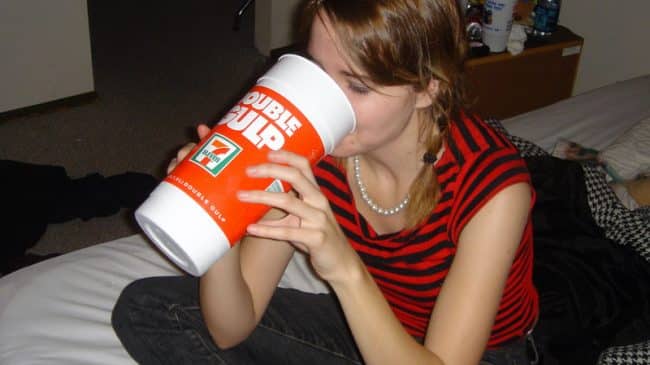A bill making its way through the California State Senate would require beverages containing added sugar to have warning labels on them. While proponents of the warning labels tout their purported public health benefits, the labels are actually likely to have negative impacts on Californians.
Senate Bill 1000, which passed the Senate’s health committee, would require sodas, energy drinks, sports drinks, flavored water – anything with added sweeteners – that have 75 or more calories per 12 ounces to display a warning label reading, “STATE OF CALIFORNIA SAFETY WARNING: Drinking beverages with added sugar(s) contributes to obesity, diabetes, and tooth decay.”
Yes, there is a good amount of evidence that excessive sugar consumption is unhealthy in various ways, including contributing to weight gain, tooth decay and diabetes. But the key word here is “excessive.”
If a person drinks just one 12- ounce soda per week, is he putting his health at risk? No. What about someone who drinks one per day? Probably not – but you might want to start factoring in the person’s metabolism and what else they eat and drink. Five sugary drinks per day? Now we’re talking – five sugary drinks of over 75 calories each might help usher in health problems.
The proposed warning label is also misleading. Because it applies only to beverages with added sugar, the label implies that beverages without added sugar are healthy. Apple juice actually contains the same amount of sugar as Coca-Cola (39 grams per 12 ounces), and orange juice is not far behind (34 grams) but the fruit juices would not have sugar warning labels. Gatorade and Vitamin Water have considerably less sugar than those fruit juices (20-21g), yet they would have to wear the warning. Putting warning labels on things like bottles of Gatorade and Vitamin Water might mislead consumers into thinking they contain more sugar than orange and apple juice. Consumers who switch to those juices without warnings could actually end up drinking more sugar than they would have otherwise.
More fundamentally, the warning label is predicated on a mistake, namely that consumption of sugary beverages is a major cause of excessive calorie intake – and that by cutting out such beverages, obesity and related problems will decline. Empirical work undertaken by David Cutler, Edward Glaeser and Jesse Shapiro at Harvard University, however, suggests that the increase in average weight seen among Americans since the 1970s is largely a result of an increase in consumption of pre-prepared foods, especially snacks.
If the Harvard researchers’ analysis is correct, the proposed warning labels on sugar-sweetened beverages would be worse than useless. They won’t address the actual cause of the problem and might make people think they can carry on eating and drinking what they like as long as what they drink doesn’t have a warning label on it. Since the warning labels don’t apply to food, some consumers might also assume food is not an important part of the problem.
The solution to obesity and related problems lies in moderation, not warning labels that arbitrarily target select sugary beverages. Cornell economist Brian Wansink has shown that we can trick ourselves into consuming less, if we want to, by eating off small plates, drinking out of taller glasses, and portioning out snacks rather than eating from giant bags.
The only way to eat and drink more healthily is by taking personal responsibility for what we consume. Continuing to blame beverage manufacturers, or forcing them to put misguided warning labels on their products, will simply reinforce misconceptions about the role those products play and discourage people from taking personal responsibility for their actions.
Julian Morris is vice president of research at Reason Foundation. This article originally appeared in the Los Angeles Register.

